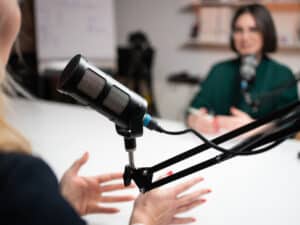International women’s day: interview with Serena Rahme

Frazer Jones is proud to be supporting International Women’s Day 2019. International Women’s Day celebrates the social, economic, cultural and political achievements of women. Whilst we all know that gender parity within the workplace has improved over the past decades, we all also know that there is still a long way to go.
We would like to join the discussion and be part of International Women’s Day 2019 #BalanceforBetter campaign on the 8th March by interviewing inspiring women we work with and, in particular, understanding the role confidence has played in their career.
Frazer Jones interviewed Serena Rahme, Operations Academy Lead (Global), The Kraft Heinz Company
How do you define confidence, particularly in the workplace?
Confidence in the workplace is the ability to feel comfortable in any environment/ situation, acknowledging your strengths & development needs. It is about remaining focused on what needs to be done, while you know what are your advantages & disadvantages.
Do you think women’s workplace confidence has improved over the past few decades? Please explain why.
Yes absolutely. With more women in Leadership roles globally and across all industries; with more women in strong political positions; and with more women leading social causes and enabling changes, we have seen a great progress and more confidence in the workplace for women.
How important have confidence and self-belief been in achieving your career goals? Please explain why.
It has played a big role. Confidence & Self Belief are part of the formula for success. Along with resilience, you can really achieve what you set your mind to and overcome obstacles that come your way. The idea is not just to believe in yourself. It is about believing that you can find a way for what you do not know, and that every step of the way, there is a key to open the door to get you to the next step.
Have you ever experienced imposter syndrome (where you doubt your achievements and have an internalised fear of being exposed as a “fraud”)? If so, how did you overcome it?
I never experienced the imposter syndrome. However there were times where I doubted whether I will be able to achieve my goals. What helped me to get back on track is the fact that I kept on reminding myself of the basics and the purpose of doing what I was doing. I was resilient in the midst of chaos, confusion, obstacles and at times, disadvantages being a woman in a Leadership role. Eventually, the doubts were turned into an inspiration and an opportunity to reconsider some things as well as continue with the main plans.
How much has risk-taking contributed to your career development?
Without taking risks I would not have been able to achieve what I set my mind to, and will not be able to in the future. Being in your comfort zone, gets you to achieve average/ flat results. But taking a risk on yourself, on your knowledge and your disadvantages only gets you to get to the other side and move up.
In my case, when I left my home country when I was 22 to start my career; when I moved from one company to another; when I took responsibility for countries where women at work was not a popular concept…. I took a risk and it paid off by giving me the knowledge, experience and professional status I have today.
Can you give an example of a risk you’ve taken that has paid dividend?
A most recent experience can be a good example. A couple of years ago my company asked me to move to a foreign country ( that I had not visited before) and that I knew nothing about its history nor culture. When I was asked to move I was told that most of the people there do not speak English and that my assignment was to bridge the gap between our company’s culture and our employee’s culture so that we can have a productive and successful way of working.
Here I was, looking at this big risk, where I will have to leave the city I had been living in for years, where I have to leave my family & friends and move to a country where I did not know anyone, and more importantly where I had to achieve a difficult objective with no previous experience in that particular area.I thought long and hard and then decided to take the risk. I moved there. Faced loads of challenges, went through ups and downs, made new friends, achieved my objective in under 2 years, added a new & rewarding experience to my portfolio, learned more about myself and developed certain gaps I had. I took a risk believing in myself, in my conviction that you can always find a way and by being resilient enough to stick through the challenges and turn them into steps along the way to Success.
How important is mentoring, coaching and sponsorship in helping women to grow their confidence at work?
Mentoring, coaching & sponsorship are important to everyone in the workplace and not just to women. I personally do not believe that a special focus has to done for women in that area.
In order to help women in having/ growing confidence at work, it has to start at home, school, universities and societies. A woman is empowered by the knowledge she acquires along the years; by the education she gets and the awareness that is created in her environment. Confidence at work should not be any different from home, neighborhood and society. If it exists in one place, it exists everywhere.
How can confidence-building be built into career development strategies?
Confidence building is not a magic pill or a unified development process where the person goes through it and becomes confident afterwards. There are many root causes and each has a different way of finding the solution to it and taking action to fix it. Once the reason for the lack of confidence in an individual or a group is identified, then the solution is customized based on the reason.
What can be done to ensure a woman being assertive in the workplace doesn’t negatively impact on colleagues’ perceptions of her?
Acceptance is the Key word here. When a woman feels accepted for who she is, how she thinks, for her advantages & disadvantages, for achievements & failures, then she will not have to do any “ extra” efforts to be assertive or to hide her lack of self confidence by exhibiting behaviors contrary to her nature.



